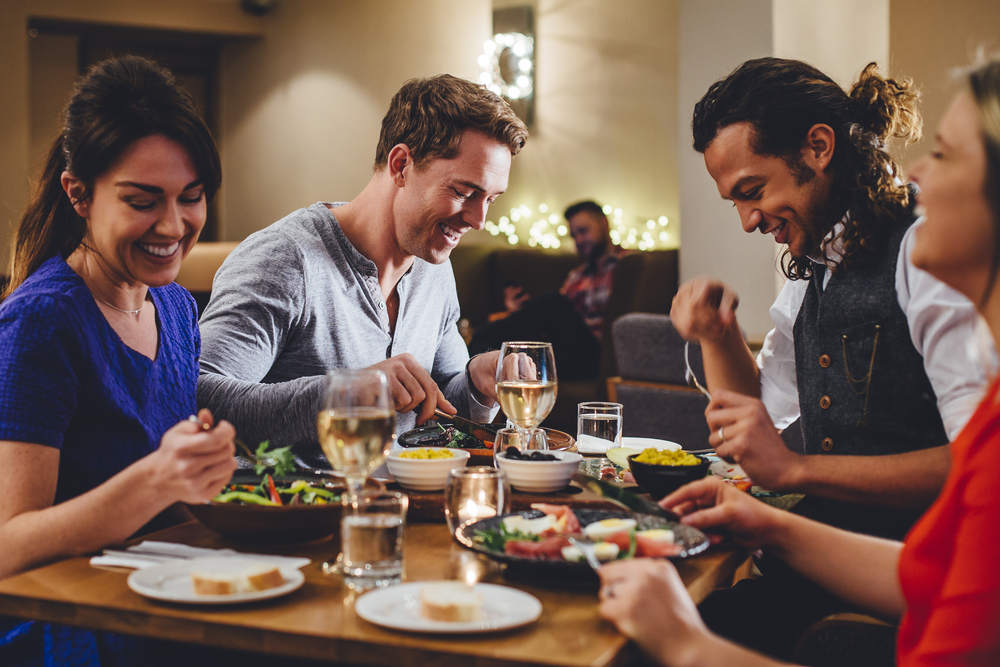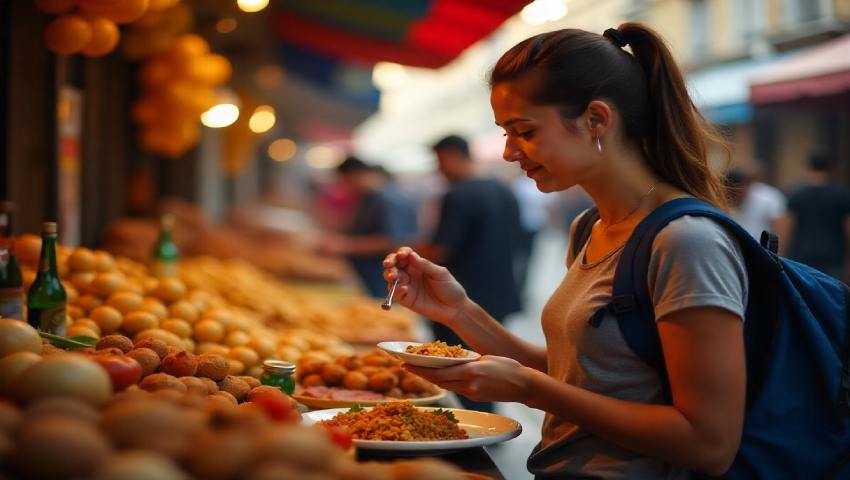
The Rising Appetite for Culinary Travel Over the past few years, a growing number of travellers are no longer satisfied with just seeing landmarks or ticking off checklists—they want to taste, smell, and savor destination stories. According to a 2025 report, food experience is influencing over 60% of travellers’ decisions about where to go. Gitnux+3Market Growth Reports+3Stories From Hilton+3 Seeing local cuisine isn’t a bonus anymore—it’s often the main event. Markets, street foods, cooking classes, wine tastings—all are now major draws. ZipDo+2discover.hotelbeds.com+2
A striking statistic: nearly one in five travellers book trips specifically for food experience, putting culinary tourism on par with natural landscapes and cultural heritage in terms of travel motivation. The Times of India+2Market Growth Reports+2. Read More : Destination Animal Wonders: Exploring the World’s Most Unique Wildlife Sites
What Defines a Memorable Food Experience

When people talk about a great food experience, they mean more than just good taste. It’s about authenticity, engagement, novelty, and story. For many, it’s visiting local markets or food districts, interacting with street vendors, trying heritage recipes, taking cooking classes, or tasting beverages native to the land. Gitnux+3ZipDo+3Market Growth Reports+3
Another element is sustainability and local sourcing. Travellers increasingly prefer food prepared with locally grown ingredients, traditional methods, and small producers. This gives the meal depth—not just flavor, but context and connection. ZipDo+2Gitnux+2. Read More : How to Start a Successful Automotive Repair Business in 2024
Food Experience as a Travel Decision Factor

Destinations and travel providers have noticed: food experience is no longer niche. It’s shaping marketing, infrastructure, trip planning. More than half of tourism boards have developed specific food tourism campaigns. Gitnux+2Market Growth Reports+2. Read More : Finance Careers in Cryptocurrency: Opportunities in the Digital Economy
In luxury travel, for example, travellers report that local dining options, food festivals, and cooking classes rank nearly as high as accommodations in importance. For many, trying a regional specialty or taking part in food-focused activities is a core reason to choose one destination over another. discover.hotelbeds.com+2Market Growth Reports+2. Read More : DTI Business Registration Tips for New Entrepreneurs
Emerging Trends Shaping Food-Centric Travel

Here are some of the most recent shifts influencing how food experience is evolving in tourism:
- Street food and market immersion: More than 70% of culinary tourists list markets and street food as highlights of their trips. These spaces offer sensory overload: smells, colours, interactions. ZipDo+2Global Growth Insights+2
- Hands-on learning: Cooking classes, farm-to-table workshops, food tours are increasingly popular. About 45% of travellers participate in cooking classes; 41% engage in farm-to-table experiences. ZipDo+1
- Luxury meets local: High-end travellers want Michelin-starred meals, but they also want authenticity—meals in homes, with local chefs, fusion, and regional uniqueness. discover.hotelbeds.com+2Market Growth Reports+2
- Wellness, sustainability, and ethical eating: Plant-based and vegetarian options, locally sourced ingredients, eco-friendly production are rising in demand. Food travellers care about impact as they care about flavor. Market Growth Reports+2Gitnux+2
- Digital and social media influence: Many travellers discover food experience offerings via Instagram, TikTok, food blogs. There’s a strong correlation between food-focused content online and actual bookings for food tours or cooking classes. ZipDo+2Market Growth Reports+2
Case Studies from Different Regions

To illustrate how food experience is becoming central to tourism globally:
- Asia-Pacific: This region holds over a third of the global market share for gastronomy tourism. Countries in South-Asia and Southeast Asia have seen a 40% increase in street food tourism over the past five years. ZipDo+2Global Growth Insights+2
- Malaysia: Report from Trip.com shows Malaysians are food-driven travellers. 78% prioritize food festivals, 73% look for restaurants with scenic or unique views, and authentic local food is especially sought. BusinessToday
- Luxury and developed markets: In luxury tourism, food-centric travel is the fastest growing segment through to 2030, with travellers willing to spend more for memorable meals and unique gastronomic events. discover.hotelbeds.com+1. Read More : Eco-Friendly Options for Business Cards Online: Sustainable Choices in 2024
Why Travelers Are Embracing Food Experience

What lies behind this shift? Several motivating forces:
- Desire for authenticity and connection: Food bonds people to place—learning about local ingredients, traditions, cook styles, tells stories that monuments alone cannot.
- Experience economy: Travelers increasingly prioritize experiences over possessions. A memorable meal can become one of the most vivid parts of a trip.
- Health, sustainability, and mindful consumption: With greater awareness of climate change, ethical food sourcing, and well-being, people pay more attention both to what they eat and how it is made.
- Influence of young travellers and social media: Gen Z and Millennials are leading the charge. They value “Instagrammable” meals, shareable content, but also genuine food narratives. This raises the bar for what counts as a good food experience.

